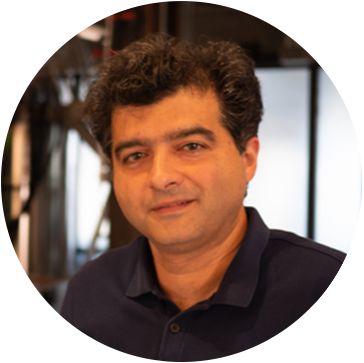
Pedram Roushan
Google Quantum AI (USA)
28th February 2022 - 7:00pm - 8:00pm (GST)
Title: | Experiments on superconducting processors at the dawn of NISQ era |
Abstract: | In 2019, the Google Quantum team demonstrated that certain computational tasks might be executed exponentially faster on a quantum processor than on a classical computer. Going beyond this milestone, we now seek to utilize these Noisy Intermediate Scale Quantum (NISQ) processors to find algorithms that are of interest to the broader scientific community. However, achieving this goal is an outstanding challenge both theoretically, e.g. in finding suitable algorithms, as well as experimentally, e.g. extending coherence of the system. By presenting some of our recent works, we discuss the challenges and our progress. In particular, we present results on preparing the ground state of the Toric code Hamiltonian using an efficient quantum circuit [1]. Combining various error mitigation techniques, we study transition to the time crystalline phase [2], which is challenging due to limited programmability, finite coherence time, and finite size of current processors. Our results demonstrate the promise of studying condensed matter problems with NISQ processors. |
Bio: | Pedram Roushan received his PhD in 2011 from Princeton University, performing the first scanning tunneling microscopy on the surface of topological insulators in the lab of A. Yazdani. After three years of post-doctoral studies in the J. Martinis lab at the University of California, Santa Barbara, in 2014 he joined the Google quantum hardware lab aiming on making a quantum computer. With the Google team in 2019, they performed the first computation on a quantum processor beyond the capability of a supercomputer. The current focus of his research is on simulating novel condensed matter phenomena with quantum processors. |


